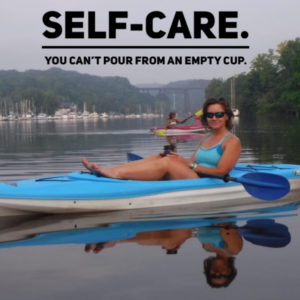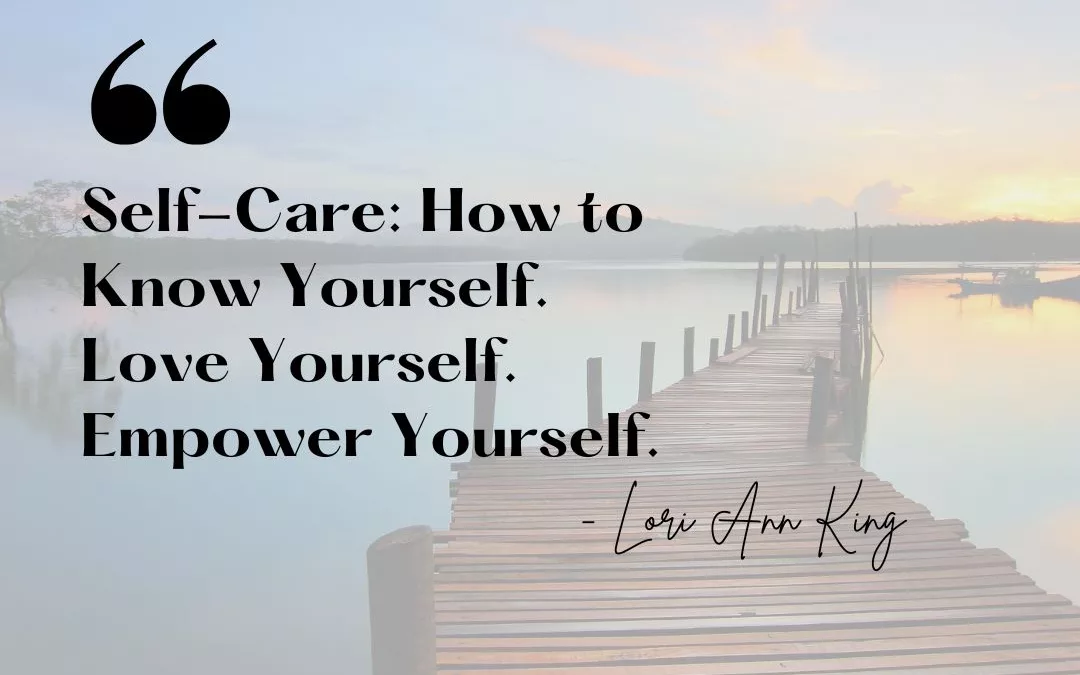 For most of my life, I lived by the philosophy of Work Hard and Play Harder. Self-care and balanced wellness was not a concept I was aware of.
For most of my life, I lived by the philosophy of Work Hard and Play Harder. Self-care and balanced wellness was not a concept I was aware of.
My order of priorities was to work and then play. Rest was simply not in my vocabulary. “I’ll sleep when I’m dead,” I thought. When challenges or obstacles came my way, I worked harder. If my body hurt or my soul was weary, I pushed through, ignoring the impact on my health or quality of life.
Until I couldn’t.
Surgery in my early forties took me down and forced me to rest. After my hysterectomy, things were not the same. Not only did I have to physically recover from major surgery, but I had to adjust to my ever-changing hormones, emotions, and symptoms of surgical menopause.
As my hormones plummeted, it felt like every aspect of my life was out of balance. My quality of life dropped. I struggled with the common symptoms of hot flashes and night sweats but also insomnia, fatigue, anxiety, and depression. My stress levels were through the roof.
Maybe you can relate. And I’m not just talking about menopause. I’m talking about those life events that add additional stress to a life you are already struggling to find balance with, where your self-care routine gets pushed out the door. It’s an accident or illness. It’s surgery or job loss. You find a lump. A friend moves. Someone dies. It’s a heart attack. Cancer. Divorce. It’s adjusting to a new way of working or learning. It’s everything going on in our world, including wildfires. Racial tensions. Elections. Covid19.
Wheels to Wellbeing: Your Guide to Creating A Self-Care Plan
As a road cyclist, I’m constantly finding life lessons from cycling. In my book, Wheels to Wellbeing: A Practical Self-Care Guide to Living A More Balanced Life, I discuss a tool to help people prioritize relationships and to reflect on and assess aspects of their life to keep moving forward, maintain their balance in good times and find their way back during challenges or setbacks. It is a tool based on the concept of knowing yourself, loving yourself, and empowering yourself. It covers physical self-care, as well as emotional, spiritual, relational, and financial.
Life Events are Life Changing and Require Self-Care
Often it takes a major life event to realize how stressed, overwhelmed, or out of balance you are. These life events force you to pause, reflect, and reprioritize.
Instead of treating your self-care system as an afterthought, begin to see it as a daily habit, part of the natural rhythm of your life.
Self-care is easier said than done.
You may not be so great at putting yourself first.
- Rest is the last thing you do if any time is left (there never is) after work and play.
- You create your to-do lists and figure you’ll practice self-care when the list is complete (it never is).
- You take care of everyone else first, and when everyone’s needs are met (they never are), you think of yourself.
It’s time to be more aware of and intentional with your self-care system.
Rocks, Pebbles and Sand
There is a story about rocks, pebbles, and sand that is used in time management seminars and teachings about priorities. You start out with an empty jar and a stack of rocks, pebbles, and sand. You’re told all the rocks, pebbles, and sand will fit into the jar as long as you add them in the right order. Start with the wrong item and you will run out of room. Without awareness and intention, you focus on the wrong thing in the wrong order, and all the priorities and requirements of your life don’t fit. You look at self-care like a piece of sand instead of the rock that it is.
One of the greatest lessons I’ve learned not only from surgical menopause but also from setbacks and challenges is that when I make self-care a habit instead of a reward, I feel calm and balanced and more able to handle life events with more ease.
Know Yourself
Self-care is about knowing what builds you up, replenishes you, and restores your energy. It is knowing yourself and your needs and knowing what fills your cup, so that you can share joy and light and love with the world.
What activities drain you? Let those go.
What are the moments in life you are completely engaged, relaxed, or happy? Do more of these.
Need solitude or connection?
Do you need to take a nap or dance out your frustration?
Some of my favorite forms of self-care include:
- Physical self-care
- Yoga
- Riding my bike
- A walk in nature
- Kayaking, SUP-ing, or simply being near the water
- Dancing
- Meditation
- Laughter
- Quality time with my husband
- Laughing with my sister
- Fueling my body with good nutrition
- Taking a nap
- Enjoying a cup of tea with a friend
- Relaxing in a bath with Epsom salts and essential oils
- Reading
- Writing
- Counseling for mental health
Know Yourself. Love Yourself. Empower Yourself.
Your list of self-care activities may look slightly different. I have friends that run, ride horses, work out, and play volleyball as a way to unwind and reduce stress. Others paint, draw, sing, cook, dance, or pray. Many find joy with their dog, cat, or beloved pet.
Whatever self-care means to you, do more of it. Do more of what relaxes and recharges you and brings you joy and laughter. The stuff that drains you? Find a way to do less of it.
Self-care is beneficial to your mental health, physical health, and emotional health. It can lower your blood pressure and can enhance quality of life.
When you are aware of your self-care needs, you do it with intention. When you purposefully add self-care to your schedule and make it part of the natural rhythm of your life instead of a reward, you’ll find you have greater clarity, creativity, and productivity. You’ll find that all your rocks, pebbles, sand, and everything else in your life simply fit.


